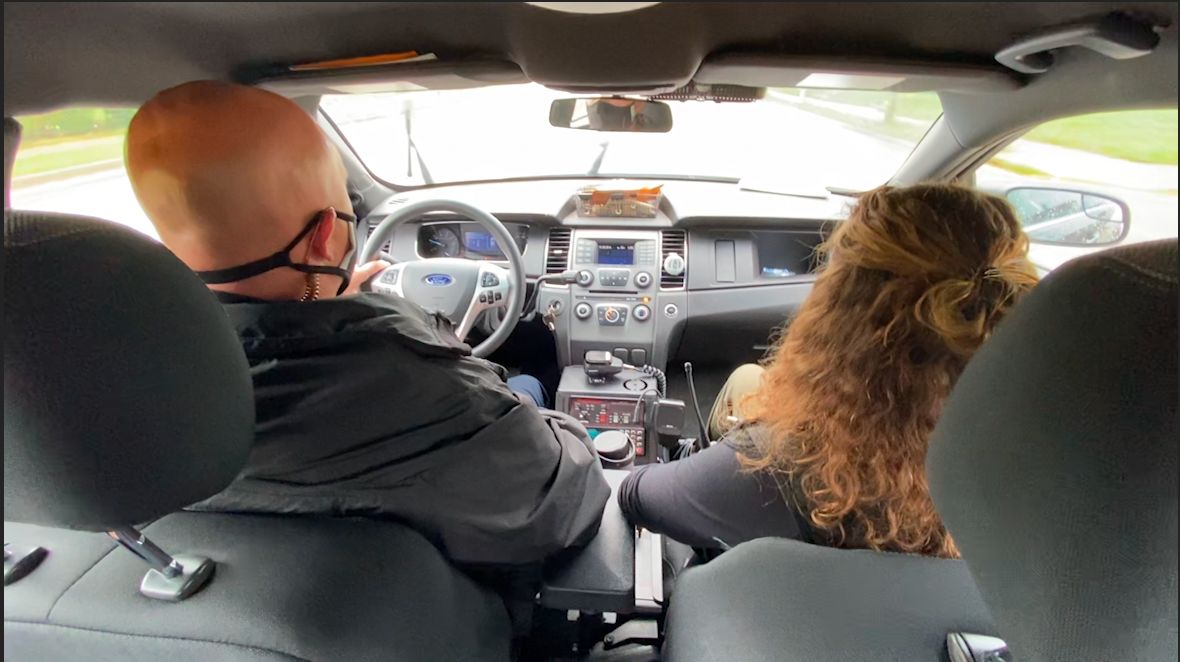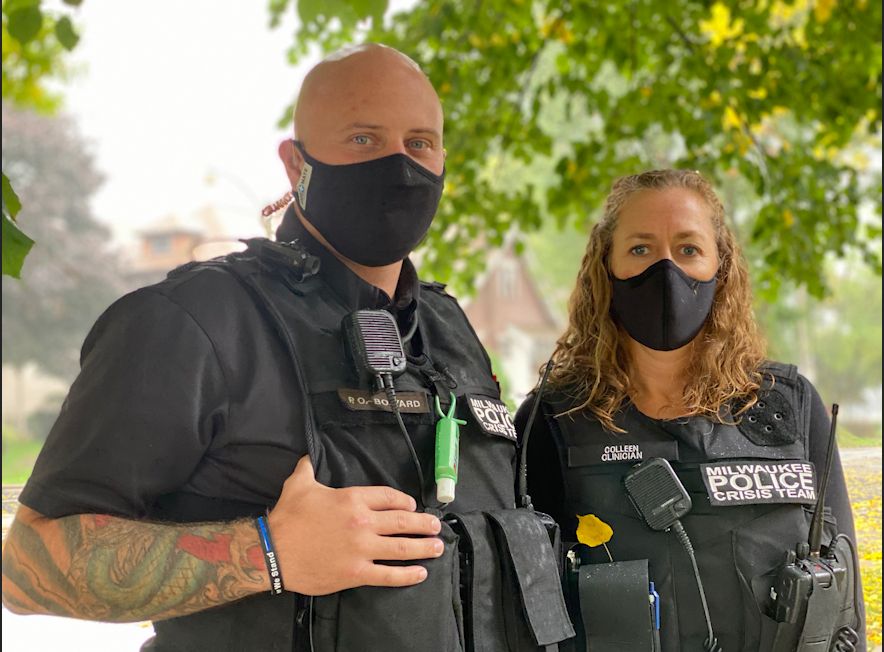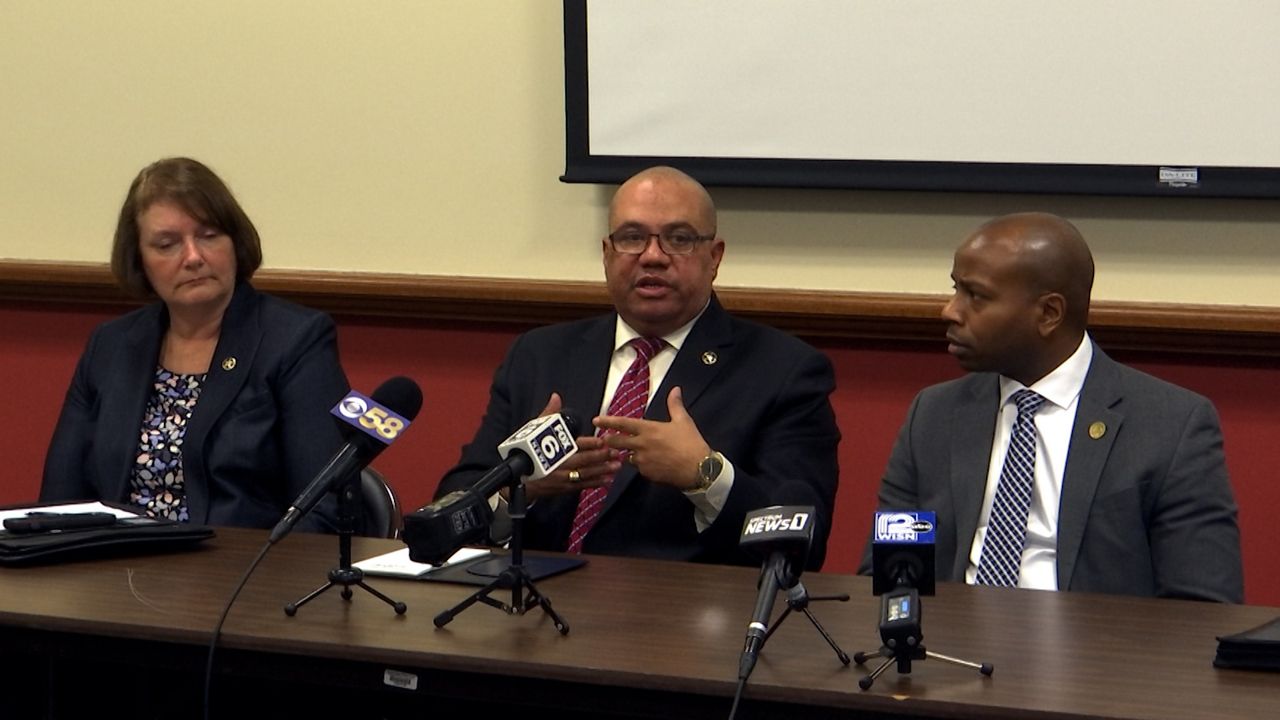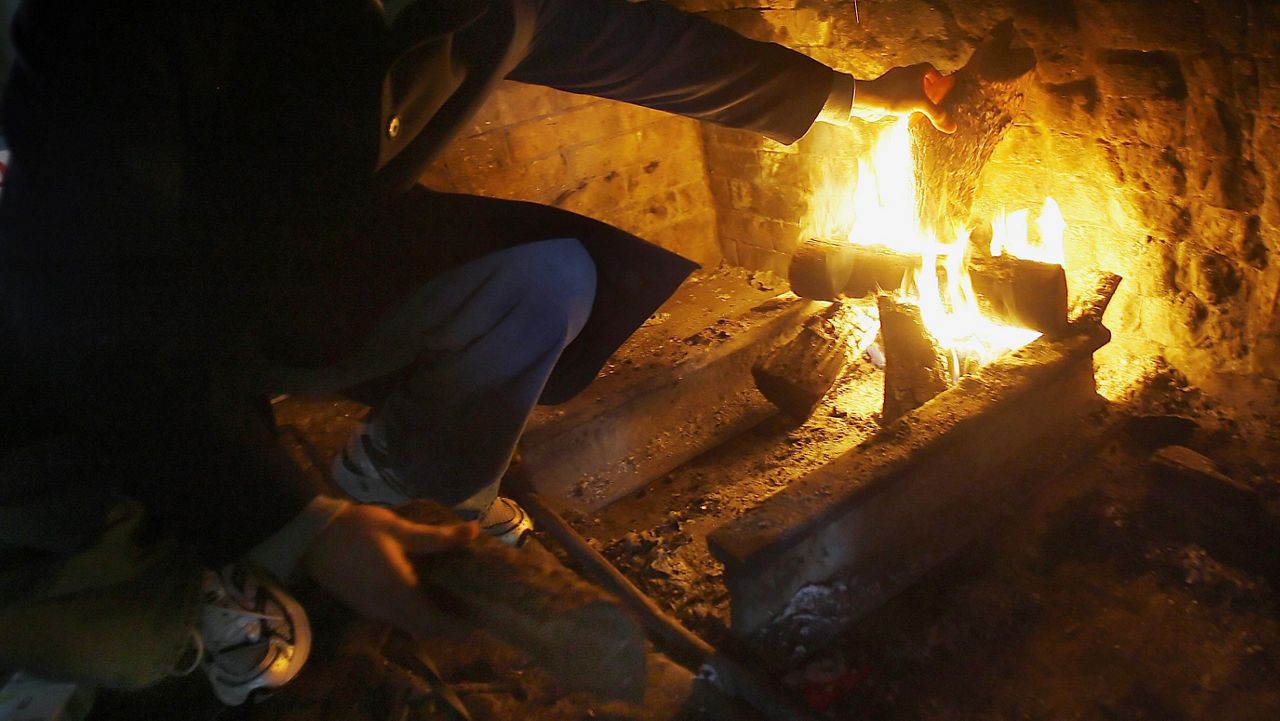MILWAUKEE — In a time of crisis, having a first responder or clinician around to assist can help save lives.
But what if the two of those paired up to increase their effectiveness?
Spectrum News got an inside look at how the Milwaukee Police crisis assessment response team operates.
It’s just another day on the job for Milwaukee’s Crisis Assessment Response Team, also known as the CART team. As the team of both an officer and behavioral health clinician make their way around town their job is to provide support when people are having a mental health crisis.

Officer Kevin Bolyard and Behavioral Health Clinician, Colleen Watters patrol the city while on their shift waiting go where they’re needed. Officer Bolyard’s been on the force 14 years and says he volunteered for this unit to help make a difference.
“Being on this unit I have more of an ability to help people who are in need of help, you have more of an ability to reach people who are in need of help and thats actually why I volunteered to be apart of this unit,” Milwaukee Police Department CART Officer, Kevin Bolyard says.
Spectrum News got to tag along to see what a day in the life looks like for them while on duty. The first call that the team responded to was a woman in crisis. Officers already on scene called them in to help de-escalate the situation.
“The goal is to get them some type of mental health treatment. In an ideal world it would be on a voluntary basis. So my role is to assess what type of help that person needs, wants and how we can assist,” CART team Behavioral Health Clinician, Colleen Watters says.
There are three cart teams in Milwaukee as a part of a partnership between the Milwaukee Police Department and the Milwaukee County Behavioral Health Division.
“We deal with people with mental health issues that’s what we do every day. Day in and day out. It gives them the ability to say this is your expertise, this is what you deal with, what should we do,” Bolyard says.
Their goal is to provide the best possibly outcome for someone struggling and in a crisis mode.
“We deal with everything from someone thats standing a bridge that is threatening to jump, to someone who is actively psychotic, to family concerns,” Watters says.

“I think a program like this that is a corresponded method is actually the best of both worlds because a law enforcement officer responding with someone with mental health expertise can actually address the issues immediately right there and then instead of an officer dealing with something and taking them somewhere and causing them more harm and not giving them the best disposition,” Bolyard says.
However, the need for a program like this is far greater than three teams can handle.
“Roughly between 15,000 and 30,000 calls a year are mental health related. As an officer on a CART team we are only able to get to roughly 1,900 to 3,000 calls a year,” Bolyard says.
Officer Bolyard and Watters agree the work is rewarding.
“I’ve been a social worker for the past 20 years and this by far has been something where I felt the most impactful where we really are out there helping people in true crisis,”“I’ve been a social worker for the past 20 years and this by far has been something where I felt the most impactful where we really are out there helping people in true crisis,” Watters says.
They are able to take advantage of teamwork and the knowledge from both officers and mental health experts while responding to calls across the city. The CART team has been around for nearly seven years in Milwaukee.
Anyone in need of help can call 414-257-7222 the Milwaukee County Crisis Line 27/7.










